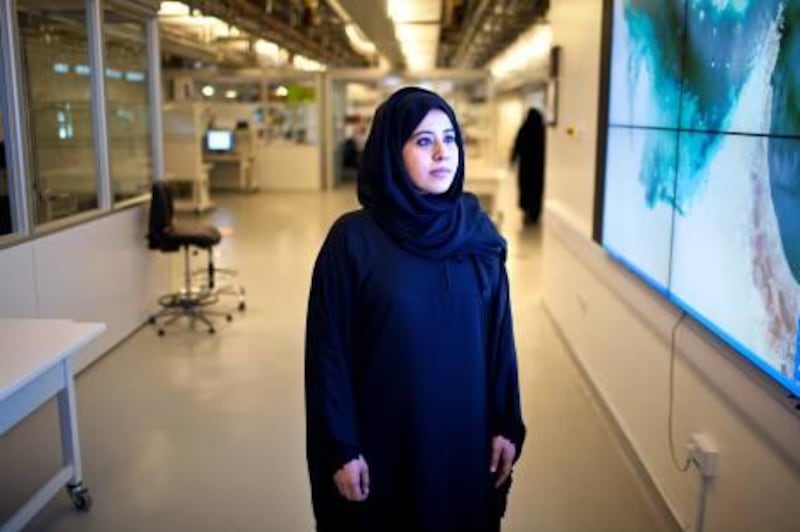ABU DHABI // Shaikha al Mazrooei regards government subsidies of utilities as a bane to the environment.
In her research, which focused on reducing carbon emissions from the water and electricity markets, Ms al Mazrooei, 26, has found subsidies leave consumers with little incentive to conserve.
But any adjustments would need to be done carefully so as not to upset the economy, she said.
Working closely with the Environment Agency - Abu Dhabi and the Abu Dhabi Council for Economic Development, the Ras al Khaimah resident has suggested policies for the utilities sector.
"As the Government subsidises more, we generate more and consumption will increase," Ms al Mazrooei said.
Electricity and water rates in the UAE are among the lowest in the world, with the Government paying most of the bills for nationals and expatriates paying about half of the true cost.
The Government has made gradual moves to lift subsidies as part of a broader plan to reduce carbon emissions by 2030, but needs to do so without distorting markets, Ms al Mazrooei said.
"Once you impose one policy over one sector it will affect the whole economy," she said.
"We should be very careful in imposing different policies, because in the end we want to maintain certain economic growth and don't want to harm the economy in order to maintain environmental satisfaction."
Ms al Mazrooei said she was originally interested in studying sustainability approaches to architectural engineering, the area in which she received her degree at UAE University.
"Instead of designing buildings I am now implementing different policies, but at the end we want to achieve the same thing - to save … the environment," she said.
Ms al Mazrooei said she felt "culture shock" when she arrived at the Masdar Institute.
"The environment, it was very new for me because it was my first time to study in an area having this mix of nationalities from all over the world."
She has recently accepted a position at Mubadala Development, a strategic investment company owned by the Abu Dhabi Government, where she said she would train to become a senior analyst.
"I want to apply [what I've learnt] and see how the results can be applicable for the Government," Ms al Mazrooei said.
"This is very important to the country."





